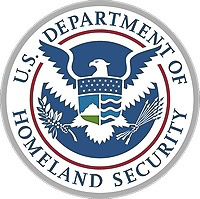DHS Adds Nearly 65,000 Additional Visas for FY ’23
The U.S. Department of Homeland Security (DHS), in consultation with the Department of Labor (DOL), recently announced that it will be issuing a regulation that will make available to employers an additional 64,716 H-2B temporary nonagricultural worker visas for fiscal year (FY) 2023, on top of the 66,000 H-2B visas that are normally available each fiscal year.
 By making these supplemental visas available at the outset of the fiscal year, which began on Oct. 1, DHS is acting to address employers’ needs for additional seasonal workers. At the same time, DHS and DOL are working together to institute protections for U.S. and foreign workers alike, including by ensuring that employers first seek out and recruit American workers for the jobs to be filled, as the visa program requires, and that foreign workers hired are not exploited by unscrupulous employers. To strengthen these efforts, DHS and DOL also announced the creation of a new White House-convened Worker Protection Taskforce.
By making these supplemental visas available at the outset of the fiscal year, which began on Oct. 1, DHS is acting to address employers’ needs for additional seasonal workers. At the same time, DHS and DOL are working together to institute protections for U.S. and foreign workers alike, including by ensuring that employers first seek out and recruit American workers for the jobs to be filled, as the visa program requires, and that foreign workers hired are not exploited by unscrupulous employers. To strengthen these efforts, DHS and DOL also announced the creation of a new White House-convened Worker Protection Taskforce.
“The Department of Homeland Security is moving with unprecedented speed to meet the needs of American businesses,” said Secretary of Homeland Security Alejandro N. Mayorkas. “At a time of record job growth, this full year allocation at the very outset of the fiscal year will ensure that businesses can plan for their peak season labor needs. We also will bolster worker protections to safeguard the integrity of the program from unscrupulous employers who would seek to exploit the workers by paying substandard wages and maintaining unsafe work conditions.”
American businesses in industries as varied as hospitality and tourism, landscaping, seafood processing, and more depend on seasonal workers to meet demand from consumers. The supplemental visa allocation will address the need for seasonal workers in areas where too few U.S. workers are available, helping contribute to the American economy.
The H-2B supplemental includes an allocation of 20,000 visas to workers from Haiti and the Central American countries of Honduras, Guatemala and El Salvador. In addition to the 20,000 visas reserved for nationals of Haiti and the Northern Central American countries, the remaining 44,716 supplemental visas will be available to returning workers who received an H-2B visa, or were otherwise granted H-2B status, during one of the last three fiscal years. The regulation will allocate these remaining supplemental visas for returning workers between the first half and second half of the fiscal year to account for the need for additional seasonal workers over the course of the year, with a portion of the second half allocation reserved to meet the demand for workers during the peak summer season.
The H-2B program permits employers to temporarily hire noncitizens to perform nonagricultural labor or services in the United States. The employment must be of a temporary nature, such as a one-time occurrence, seasonal need or intermittent need. Employers seeking H-2B workers must take a series of steps to test the U.S. labor market. They must also certify in their petitions that there are not enough U.S. workers who are able, willing, qualified and available to perform the temporary work for which they seek a prospective foreign worker. In addition, employers must certify that employing H-2B workers will not adversely affect the wages and working conditions of similarly employed U.S. workers.
To read the full release, click here.
